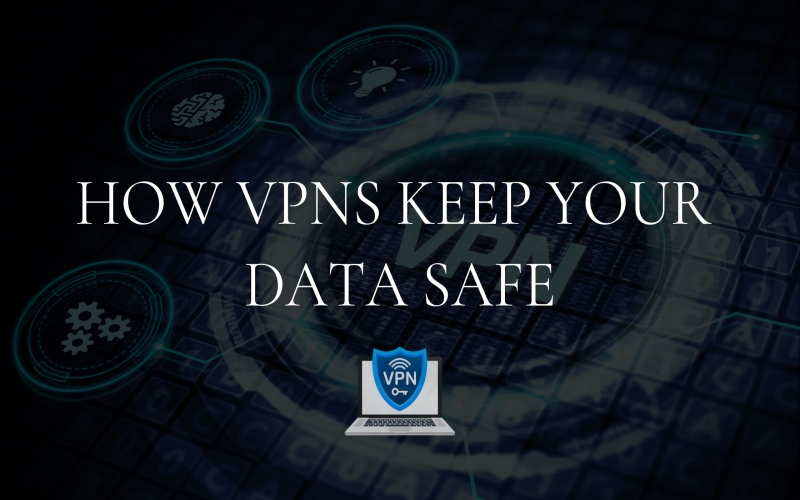VPNs are essential in today’s digital world to keep your data safe. With more cyber threats and privacy issues, protecting your personal and sensitive information is crucial.
A VPN, or Virtual Private Network, helps secure your data by creating a safe connection over the internet. It hides your online activity and keeps your information private from hackers and other prying eyes.
In addition to VPNs, knowledge of CCIE Security can further enhance your ability to protect and manage data securely. Both VPNs and CCIE Security play a significant role in maintaining your online security and privacy.
What is a VPN and How Does it Work?
A Virtual Private Network (VPN) is a technology that creates a secure, encrypted connection over a less secure network, such as the internet. By using a VPN, users can ensure that their data is transmitted securely and remains private from prying eyes.
How Does a VPN Work?
- Encryption: When you connect to a VPN, your data is encrypted. This means that your information is converted into a code to prevent unauthorized access. Encryption ensures that even if your data is intercepted, it cannot be read without the encryption key.
- Tunneling: A VPN creates a secure “tunnel” between your device and the VPN server. This tunnel protects your data from being accessed by others as it travels over the internet.
Types of VPNs
VPNs come in various forms, each designed to meet different needs. Here are the most common types:
Remote Access VPN
A Remote Access VPN allows individual users to connect to a private network from a remote location. This type is widely used by employees working from home to securely access their company’s network.
Site-to-Site VPN
A Site-to-Site VPN connects entire networks to each other, typically used by businesses with multiple office locations. This allows offices to share resources and communicate securely over the internet.
| Type of VPN | Description | Use Case |
| Remote Access VPN | Connects individual users to a private network | Telecommuting employees |
| Site-to-Site VPN | Connects entire networks to each other | Businesses with multiple offices |
Benefits of Using a VPN
Using a VPN offers numerous benefits that enhance both security and usability:
– Privacy and Anonymity Online
A VPN masks your IP address, making your online activities anonymous. This prevents websites, advertisers, and even your internet service provider (ISP) from tracking your browsing habits.
– Secure Data Transmission
With encryption, your data is protected from cybercriminals. This is particularly important when using public Wi-Fi networks, which are often unsecured and a hotspot for hackers.
– Access to Restricted Content
VPNs allow you to bypass geographical restrictions and access content that may be unavailable in your region. This is useful for streaming services, accessing blocked websites, and more.
– Protection on Public Wi-Fi Networks
Public Wi-Fi networks are convenient but often lack security measures. Using a VPN on these networks ensures that your data remains safe from potential threats.
Is a VPN Really Secure?
While VPNs offer robust security features, they are not foolproof. Here’s a closer look at the security aspects:
– Encryption Standards and Protocols
VPNs use various encryption standards such as AES-256, which is highly secure. They also utilize protocols like OpenVPN and IKEv2/IPsec, which ensure a secure and stable connection.
– Potential Vulnerabilities
Despite their security, VPNs can have vulnerabilities. These may include DNS leaks, where your DNS requests are exposed outside the VPN tunnel, or weak encryption methods. Choosing a reputable VPN provider with strong security practices mitigates these risks.
Pros and Cons of Using a VPN
– Advantages
- Privacy: Keep your online activities private.
- Security: Protects your data from cyber threats.
- Access: Enables access to restricted content.
– Disadvantages
- Speed Reduction: VPNs can slow down your internet connection due to encryption overhead.
- Trust in Provider: You need to trust your VPN provider with your data.
Conclusion
In conclusion, VPNs are an essential tool for maintaining data security and privacy in today’s interconnected world. They offer numerous benefits, including protecting your data, maintaining online anonymity, and accessing restricted content.
However, it is crucial to choose a reputable provider and stay aware of potential vulnerabilities. By understanding and utilizing VPNs, you can significantly enhance your online security. Additionally, CCIE Security Training can provide deeper insights and skills to further bolster your data protection efforts.
Incorporating a VPN into your daily online activities is a smart move towards safeguarding your personal and sensitive information against the ever-evolving landscape of cyber threats.

